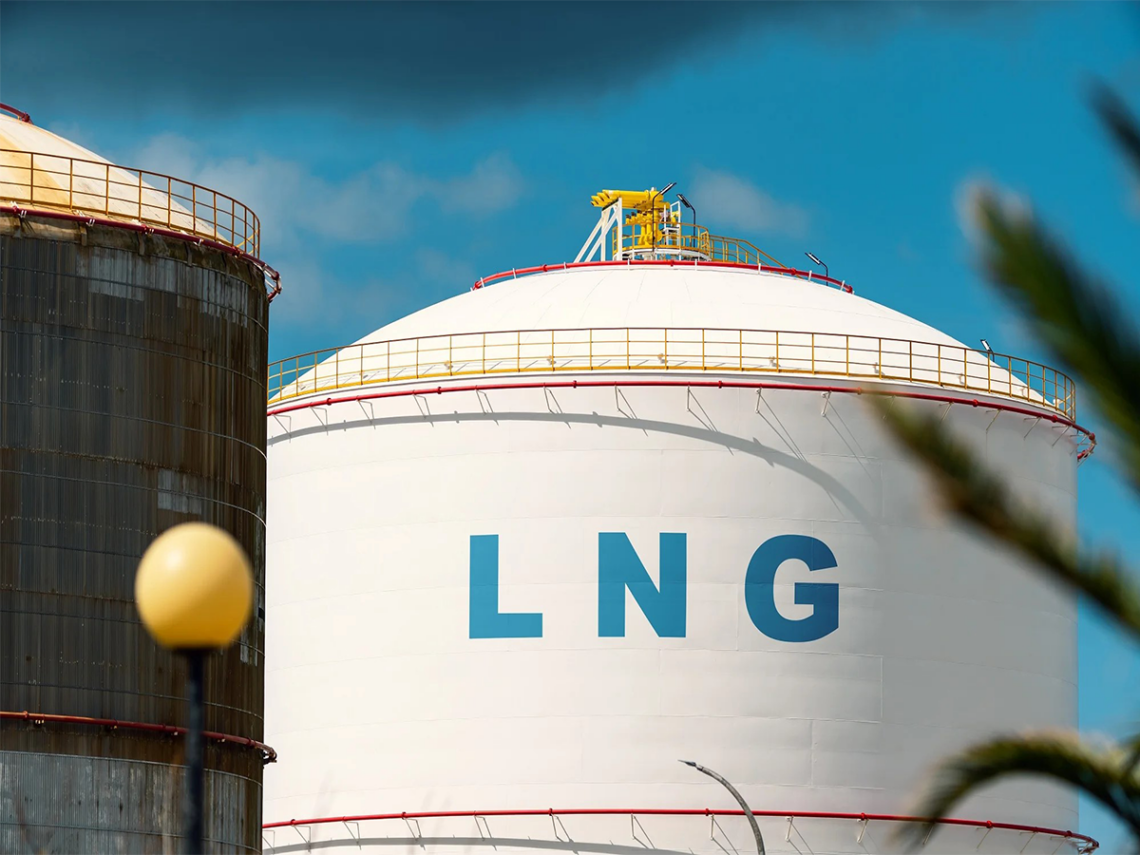Nigeria stands on the brink of energy transformation with the right collaboration and investment strategies.
This allows the country to realise its full potential in the global energy market while transitioning towards sustainable practices.
The recent World LNG Summit and Awards in Berlin, Germany, highlighted the country’s potential as a major player in the liquefied natural gas (LNG) sector.
The theme, “Achieving the Balance Between Energy Security and Decarbonisation,” resonates well with Nigeria’s aspirations, especially under the President Bola Tinubu’s administration, who emphasises positioning natural gas as a cornerstone of the nation’s energy strategy.
Given the country’s status as one of the largest producers of natural gas globally, the summit provided an essential platform to showcase Nigeria’s untapped reserves and foster international collaboration.
Nigeria has the opportunity to enhance its LNG sector through strategic partnerships with global producers, technology innovators, and financial entities.
Such collaborations can facilitate substantial investment in critical infrastructure, expanding LNG export terminals, and enhancing pipeline systems.
Moreover, embracing advancements in LNG research and technology is crucial as the global market pivots toward sustainable energy solutions.
Addressing the issue of natural gas flaring through innovative technologies and financing strategies was also a significant discussion point at the summit.
This approach not only aligns with environmental goals but can also enhance the country’s reputation in the international energy community.
To further solidify its position as a leading LNG exporter, Nigeria must seek favorable global pricing mechanisms and forge mutually beneficial trade agreements.
The summit also presented credible insight into shifting market trends, including the growing demand for LNG in emerging economies and its future role in developed nations’ energy mixes.
Geopolitically, the disruption caused by Russia’s invasion of Ukraine has led many European countries to seek alternatives to Russian fossil fuels.
Nigeria’s LNG could play a crucial role in Europe’s energy future as the summit offered Nigerian delegates insight into the exploration of new export routes and secure long-term contracts, strengthening its position in the global market.
The summit provided Nigerian companies, including startups, with the opportunity to showcase their innovations in LNG, through exposure and international attraction.
This will accelerate the growth of the domestic LNG sector, boosting both economic prosperity and Nigeria’s standing in the global energy market.
With its vast reserves, Nigeria’s LNG exports have been facing stiff competition from other major producers like Qatar, Australia, and the United States.
The post-summit gains should now include focus on global LNG market dynamics, including pricing, supply-demand projections and emerging market trends.
By tapping into cutting-edge technologies and participating in discussions on the future of LNG, Nigeria can significantly benefit from the knowledge shared at this global event.
Some experts believe that with its LNG potentials, Nigeria is a force to be reckoned with but for challenges such as infrastructure limitations, funding gaps, and regulatory hurdles remain.
Mr Dumnam Dekor, Chairman of the House Committee on Host Communities, underscored the importance of revisiting policies for a better support for host communities, especially those impacted by LNG facilities.
He highlighted the need for comprehensive policy reforms to align with global trends and ensure that LNG benefits are equitably distributed.
Mr Hart Godwin, another Nigerian lawmaker, emphasised the importance of increased investment in upstream energy projects, particularly in deep-water gas production.
He called for a regulatory environment conducive to competition and stressed the need to address security challenges, which affect production costs.
Godwin also praised President Tinubu’s executive order on oil and gas reforms, which includes tax incentives to boost Nigeria’s LNG competitiveness.
Abdulmalik Halilu, Director of Monitoring and Evaluation at the Nigerian Content Development and Monitoring Board, highlighted the importance of regional cooperation in addressing global climate goals.
He stressed that Nigeria must view net-zero ambitions from a continental perspective and adopt regulations that foster cooperation within ECOWAS and Africa as a whole.
On the role of financial institutions in funding LNG projects, Halilu explained that environmental, social and governance (ESG) criteria were not meant to limit development but to ensure responsible field development that minimises environmental harm.
He advised Nigerian companies to focus on developing indigenous capabilities in LNG infrastructure, reducing reliance on foreign expertise.
In the same vein, Mr Olajide Bamidele, a Director at the Federal Ministry of Trade and Investment, emphasised the growing dominance of LNG in global energy markets.
He warned that Nigeria must address the challenges related to competition and climate change.
He called for a national focus on alternative energy sources and strategies to maintain LNG’s position in the market for the next 10 to 20 years.
“As the LNG industry evolves, the summit offers critical insights into the global energy transition.
Nigeria’s participation provides opportunities to modernise its LNG sector, forge strategic partnerships, and tap into technological innovations that will shape the future of global energy.
With its vast reserves and commitment to energy transition, Nigeria is well-positioned to harness the full potential of its LNG industry and become a global LNG powerhouse,” he added. NAN





